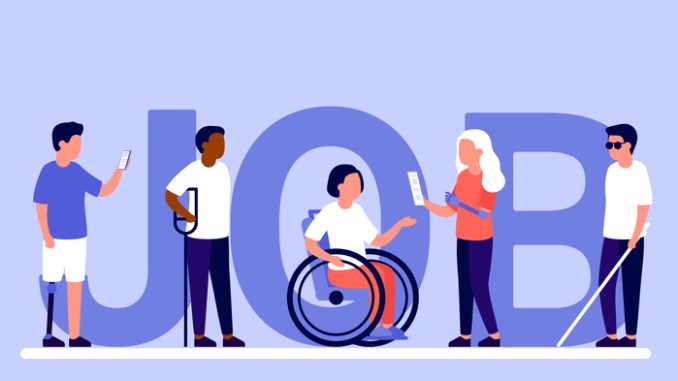
Supporting disabled individuals in the workplace is not only a legal obligation but also a vital step toward fostering an inclusive and equitable working environment
CREDIT: This is an edited version of an article that originally appeared on The HR Director
According to data, 5.1 million disabled individuals are employed in the UK, a figure influenced by the growing recognition and reporting of mental health conditions.
At the same time, claims of disability discrimination filed with Employment Tribunals are increasing, with record-breaking compensation awards being issued. To effectively support disabled employees, organisations must prioritise implementing reasonable adjustments in the workplace.
Considering the significant presence of disabled individuals in the UK workforce, alongside existing anti-discrimination laws, the UK government has signalled potential new policies. These proposals aim to provide disabled jobseekers with enhanced specialist support to access employment and may require employers to disclose disability pay data.
Understanding Reasonable Adjustments
Reasonable adjustments are modifications made by employers to eliminate or minimise disadvantages linked to an individual’s disability. Under the Equality Act 2010, employers have a legal duty to implement reasonable adjustments when they are aware, or could reasonably be expected to be aware, of an employee’s disability.
Fundamentally, reasonable adjustments are tailored to the specific needs of an individual, addressing both mental and physical health conditions, and can encompass any aspect of their work. These adjustments go beyond physical changes to the workplace and may include alterations to the layout of the working environment, provision of specialised equipment, or adjustments to working practices. Additionally, they involve fostering equality and inclusion within the team, ensuring that the individual is fully supported and able to contribute effectively.
Ensuring Adjustments are Appropriate
Seeking medical advice is crucial for employers to identify and implement appropriate adjustments for employees with disabilities. Engaging with occupational health professionals plays a vital role in this process, as they can provide expert guidance on the specific needs of the employee and recommend practical adjustments to address workplace barriers.
Equally important is the employee’s input, as their firsthand perspective is invaluable in understanding their challenges and identifying potential solutions.
Once the barriers faced by the employee are identified, and appropriate adjustments are recommended, employers must focus on implementing these changes effectively. This includes considering timelines, costs and logistical planning, as well as ensuring that the adjustments align with the overall goals of inclusion and productivity within the team.
Employers are encouraged to document any agreed-upon reasonable adjustments in writing as a best practice. Regular reviews should then be conducted to evaluate the effectiveness of these adjustments over time. During these reviews, employers should actively seek feedback from the employee to ensure the adjustments are meeting the identified needs and make further modifications if necessary.
By prioritising reasonable adjustments and maintaining open communication, employers can empower disabled employees to thrive while creating a more inclusive and productive workforce.


Be the first to comment